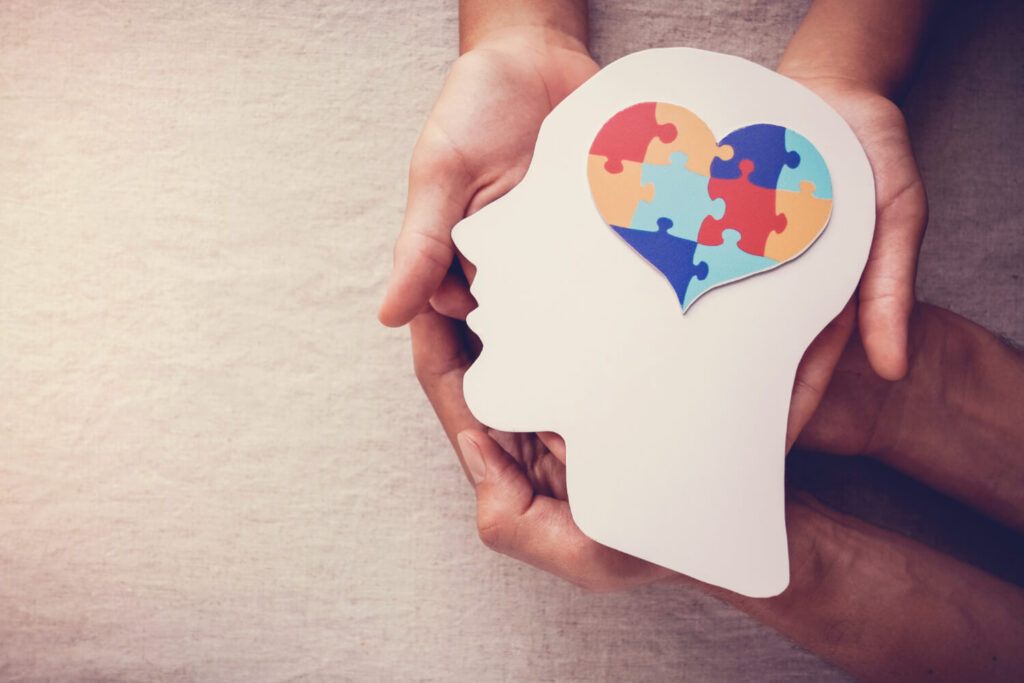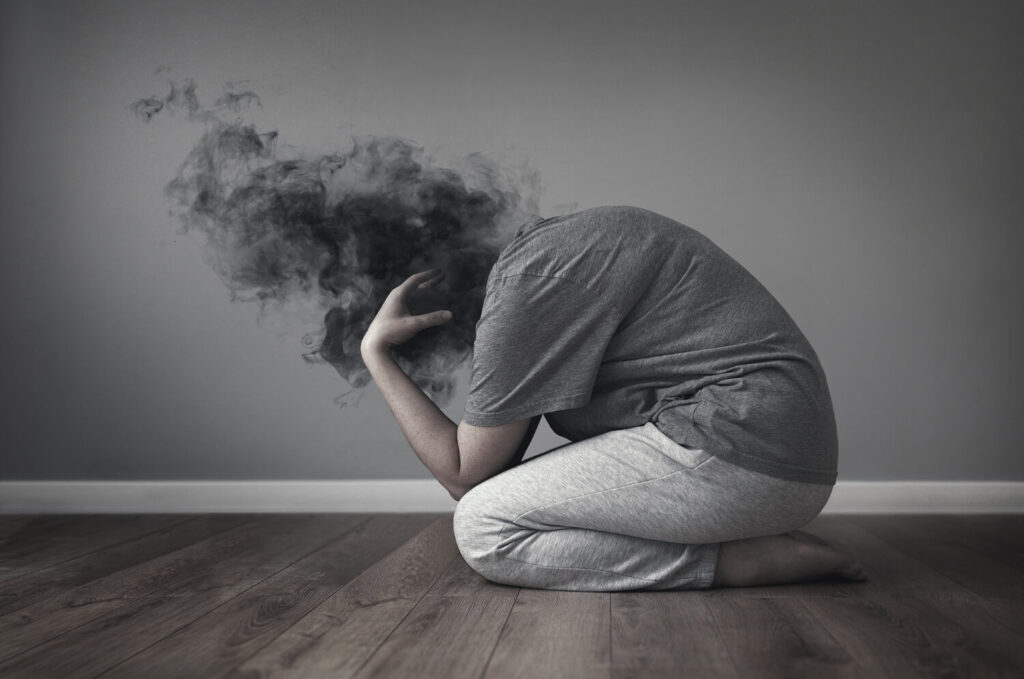As we navigate the complexities of our modern lives, understanding and prioritizing our emotional well-being is crucial for achieving overall wellness. In this article, we will explore the various aspects of mental health and delve into the significance of emotional well-being. By gaining a deeper understanding of these concepts, we can take steps towards fostering better mental state for ourselves and those around us.
Defining Mental Health

Mental health refers to our emotional, psychological, and social well-being. It affects how we think, feel, and act, and it influences how we handle stress, make decisions, and interact with others. It is a complex and dynamic aspect of our overall well-being, encompassing various components that contribute to our overall mental wellness.
The Components of Mental Health
This psychological health aspect is multifaceted, encompassing various components that contribute to our overall well-being. These components include emotional well-being, cognitive health, social connections, and resilience. Each component plays a unique role in shaping our mental health and contributes to our ability to lead fulfilling lives. Let’s discuss each of them below!
Emotional Well-being
This component involves being aware of and acknowledging our emotions, understanding their impact on our thoughts and actions, and finding healthy ways to express and regulate them. It allows us to cultivate self-awareness, develop emotional intelligence, and build resilience in the face of challenges.
Cognitive Health
Meanwhile, this component refers to our ability to think, reason, and problem-solve. It involves maintaining mental clarity, engaging in critical thinking, and being open to learning and new experiences. Cognitive health is essential for our overall mental well-being as it enables us to process information effectively, make sound decisions, and adapt to new situations.
Social Connections
On the other hand, social connections are also crucial for a healthy mental state. They provide support, companionship, and a sense of belonging, which can result in positive relationships. Having social support networks contribute to our overall well-being by providing emotional support, reducing stress, and promoting a sense of connectedness.
Resilience
Finally, resilience refers to our capacity to cope with adversity, bounce back from setbacks, and adapt to changing circumstances. Resilience is a key component as it enables us to navigate life’s challenges, maintain a positive outlook, and recover from difficult experiences.
The Role of Emotional Well-being in Mental Health
Emotional well-being plays a pivotal role in maintaining good mental state. When we are emotionally well, we are better equipped to manage stress, build positive relationships, and make informed decisions. It allows us to develop healthy coping mechanisms and effectively regulate our emotions.
Additionally, it enhances our overall quality of life. It promotes a sense of fulfillment, meaning, and purpose, enabling us to experience greater satisfaction and happiness. When we are emotionally well, we are more likely to engage in activities that bring us joy, cultivate positive relationships, and pursue our goals and aspirations.
The Connection Between Mental Health and Physical Health

It is important to recognize that mental health and physical health are deeply intertwined. The mind and body are interconnected, and disruptions in one domain can impact the other. Understanding this connection is vital for grasping the full scope of mental health and its implications on overall well-being.
When we think about health, we often focus solely on physical symptoms and conditions. However, mental health plays a significant role in our overall well-being. It affects how we think, feel, and act. Furthermore, it influences our ability to cope with stress, make decisions, and form relationships.
The Impact of Mental Health on Physical Conditions
It is not just the physiological changes that impact physical health. Mental health can also influence our behaviors and choices, which in turn affect our physical well-being. For example, individuals struggling with depression may have a decreased appetite and lack motivation to engage in physical activity, leading to weight loss, muscle weakness, and decreased cardiovascular fitness.
Moreover, these kinds of issues can affect our ability to manage chronic conditions. For instance, individuals with diabetes who also have depression may struggle to adhere to their medication regimen. It can affect their judgement in healthy dietary choices, leading to poorly controlled diabetes and increased risk of complications.
Furthermore, it can disrupt our sleep patterns, leading to sleep disorders such as insomnia or sleep apnea. Sleep deprivation, in turn, can impair cognitive function, decrease productivity, and increase the risk of accidents and injuries.
How Physical Health Influences Mental State
Conversely, taking care of our physical health positively impacts our mental well-being. Engaging in regular exercise releases endorphins, known as “feel-good” hormones, which can improve mood, reduce anxiety, and alleviate symptoms of depression. Exercise has also been shown to enhance cognitive function, memory, and overall brain health.
Similarly, adopting a balanced and nutritious diet provides the necessary nutrients for the brain to function optimally. Nutrient deficiencies, such as low levels of omega-3 fatty acids or B vitamins, have been linked to an increased risk of mental health disorders. By fueling our bodies with the right nutrients, we can support our mental health and promote emotional well-being.
Getting sufficient restorative sleep is also crucial, as sleep deprivation is associated with increased stress, irritability, and impaired cognitive functioning. By prioritizing good sleep hygiene, we can enhance our mental clarity, emotional stability, and overall mental health. Sleep allows our brain to rest, recharge, and process emotions, contributing to improved mood and cognitive performance.
In addition to exercise, nutrition, and sleep, other lifestyle factors such as social connections, stress management, and self-care practices also play a significant role in maintaining good mental and physical health. Taking time for relaxation, engaging in hobbies, and seeking support from loved ones can all contribute to a balanced and fulfilling life.
It is clear that the relationship between mental and physical health is reciprocal, emphasizing the importance of holistic self-care. By recognizing and addressing the connection between the two, we can strive for optimal well-being and lead healthier, happier lives.
The Stigma Surrounding Mental Health

Despite significant advancements in understanding mental health, stigma remains a persistent issue that affects individuals seeking help. Addressing and combating this stigma is crucial for creating a more compassionate and supportive society.
The Consequences of Mental Health Stigma
Discriminatory behaviors, social isolation, and reluctance to seek help is the common cycle that should be abolished. The fear of judgment and negative stereotypes can prevent individuals from reaching out for support, delaying treatment, and exacerbating their condition.
That’s why this never-ending stigma about mental health is never okay. This situation can perpetuate feelings of shame, guilt, and low self-esteem, further negatively impacting an individual’s mental well-being. It is important to understand that mental health conditions are medical conditions that require appropriate care and support, just like any other health issue.
Strategies for Combating Stigma
To combat the stigma, education and awareness are crucial. Promoting open conversations about mental health can help dispel misconceptions and challenge stereotypes. By fostering an environment where individuals feel safe to discuss their experiences without fear of judgment, we can create a culture of empathy and understanding.
Additionally, offering support resources, such as helplines, counseling services, and community initiatives, can provide avenues for individuals to seek assistance confidentially. Encouraging individuals to share their stories and experiences can also be empowering, as it highlights the resilience and strength of those living with such conditions.
The Importance of Mental Health in Different Life Stages
Mental health is relevant at every stage of life, from childhood through old age. Understanding how mental health needs evolve and change across different life stages can help us address potential challenges and promote well-being.
Childhood and Adolescence
Children and adolescents face unique mental health challenges as they navigate the various physical, emotional, and social changes associated with this period of development. It is essential to prioritize early intervention and support to promote positive mental health outcomes.
Building resilience, teaching emotional regulation skills, fostering healthy relationships, and creating a supportive environment are critical for promoting mental well-being in this stage of life. Recognizing the signs of common mental health conditions, such as anxiety and depression, and providing appropriate resources and treatment is crucial for ensuring healthy emotional development.
Adulthood and Old Age
In adulthood, the responsibilities and demands of work, relationships, and parenthood can impact mental health. It is important to prioritize self-care and seek support when needed. Additionally, the transition into older age brings unique challenges, such as physical health decline, loss of loved ones, and isolation.
Creating a support network, engaging in fulfilling activities, and maintaining a sense of purpose can contribute to positive mental health outcomes in old age. Regular medical check-ups, staying socially connected, and maintaining an active and healthy lifestyle are also vital for overall well-being.
Approaches to Improving Mental Health
Improving mental health requires a holistic approach that addresses the various aspects of well-being. While professional help is invaluable, there are also proactive steps individuals can take to enhance their mental well-being.
Psychological Therapies and Interventions
Psychological therapies, such as cognitive-behavioral therapy (CBT), counseling, and psychotherapy, can provide individuals with tools and strategies to manage their mental health effectively. These therapeutic approaches help individuals identify negative thought patterns, learn coping mechanisms, and develop healthier behaviors and beliefs.
Additionally, interventions such as mindfulness practices, meditation, and relaxation techniques can promote emotional well-being and stress reduction. These practices allow individuals to cultivate a greater sense of self-awareness, improve focus and concentration, and enhance overall mental resilience.
Lifestyle Changes
Adopting healthy lifestyle habits can significantly impact mental well-being. Regular exercise, adequate sleep, nutritious diet, and stress management techniques, such as yoga or deep breathing exercises, can all contribute to a healthier mind.
Engaging in activities that bring joy and fulfillment, nurturing positive relationships, and setting realistic goals are also essential for maintaining optimal mental health. Additionally, limiting exposure to negative influences, such as excessive media consumption or toxic relationships, can protect mental well-being.
Final Thoughts
Understanding mental health and the importance of emotional well-being is crucial for achieving overall wellness. By recognizing the various components of mental health, addressing the stigma surrounding mental illness, and prioritizing mental well-being across different life stages, we can create a society that values and supports mental health.
Seek support when needed as it can pave the way towards a happier, more resilient, and mentally healthier life. Book a consultation with a psychiatrist to begin!
Mental Health Awareness Quiz
Test your knowledge about emotional well-being



